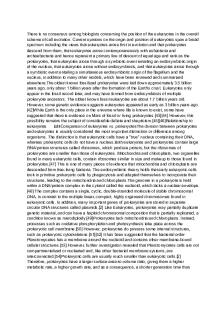5- Gallic Wars - Lecture notes 5 PDF

| Title | 5- Gallic Wars - Lecture notes 5 |
|---|---|
| Course | Special Topics in Classics |
| Institution | Emory University |
| Pages | 2 |
| File Size | 124.1 KB |
| File Type | |
| Total Downloads | 20 |
| Total Views | 155 |
Summary
Lecture notes and notes from readings...
Description
GALLIC WARS – Julius Caesar
Gaul: consists of 3 regions: Belgae, Aquitani, Celts (Gauls). Differ in language customs and law. Belgae: bravest, farthest from civilization and merchants. Don’t have things that “effeminate” the mind as corruption. Nearest to Germans. Celts (Helvetti): Brave too. Always in war w Germany either defending or attacking. Confined by nature so had narrow limits to fight. Really wanted to because they are renowned for their warfare and bravery. Burned towns and corn (own and neighbours), took 3 month provisions and corn Orgetorix: Office of ambassador to the states. most distinguished and wealthy. Formed a conspiracy amongst nobility and persuaded people and Sequani, Aeduan leaders (dumnorix and casticus) to join forces and try conquer Gaul. He committed suicide. Dumnorix: kind, married Orgetorix daughter, helped Helvetii in crossing Sequani bc he was friendly and loved by both, Also wanted to have maximum states attached to him by his kindness. Brother of Divitiacus (general from Aedui) he doesn’t want to succumb to roman rule. Although they asked for Caesar defense against Helvetii. Power-hungry River Garonne: separates Gauls from Aquitani River Rhine: broad and deep river, separating Helvetian territory from Germans River Marne and Seine: separates Gauls and Auitani from Belgae Allobroge: roman province
How does Caesar describe the barbarian peoples he encountered during his campaign? Unreliable. They withheld the food and deliberately tried to sabotage his campaign because they didn’t want to side with the Romans. Cowardly. Treacherous. Ungrateful. A lot of people begged him. What image does he project of his own leadership, and how does he account for his military success? 3-line formation: 2 remained at arms while 3rd built another set of fortifications. Left 2 legions in new camp and took 4 to the old camp. Strategic formations. Took prisoners. Captured baggage. Lenient and understanding. Attacked while Helvetii were unaware. Provident in constructing bridges, fortification. Speedy. In Caesar’s view, what distinguishes “civilized” from “uncivilized” peoples? What do you think his aim was in writing the work?...
Similar Free PDFs

5- Gallic Wars - Lecture notes 5
- 2 Pages

5 - Lecture notes 5
- 4 Pages

Lesson 5 - Lecture notes 5
- 22 Pages

5 Statehood - Lecture notes 5
- 4 Pages

Prokaryotes 5 - Lecture notes 5
- 2 Pages

5. Conduct - Lecture notes 5
- 4 Pages

Chapter 5 - Lecture notes 5
- 15 Pages

Chapter-5 - Lecture notes 5
- 6 Pages

Chapter 5 - Lecture notes 5
- 83 Pages

Tutorial 5 - Lecture notes 5
- 3 Pages

Chapter 5 - Lecture notes 5
- 4 Pages

Imagen 5 - Lecture notes 5
- 1 Pages

Quiz 5 - Lecture notes 5
- 11 Pages

Chapter 5 - Lecture notes 5
- 20 Pages

Chapter 5 - Lecture notes 5
- 4 Pages
Popular Institutions
- Tinajero National High School - Annex
- Politeknik Caltex Riau
- Yokohama City University
- SGT University
- University of Al-Qadisiyah
- Divine Word College of Vigan
- Techniek College Rotterdam
- Universidade de Santiago
- Universiti Teknologi MARA Cawangan Johor Kampus Pasir Gudang
- Poltekkes Kemenkes Yogyakarta
- Baguio City National High School
- Colegio san marcos
- preparatoria uno
- Centro de Bachillerato Tecnológico Industrial y de Servicios No. 107
- Dalian Maritime University
- Quang Trung Secondary School
- Colegio Tecnológico en Informática
- Corporación Regional de Educación Superior
- Grupo CEDVA
- Dar Al Uloom University
- Centro de Estudios Preuniversitarios de la Universidad Nacional de Ingeniería
- 上智大学
- Aakash International School, Nuna Majara
- San Felipe Neri Catholic School
- Kang Chiao International School - New Taipei City
- Misamis Occidental National High School
- Institución Educativa Escuela Normal Juan Ladrilleros
- Kolehiyo ng Pantukan
- Batanes State College
- Instituto Continental
- Sekolah Menengah Kejuruan Kesehatan Kaltara (Tarakan)
- Colegio de La Inmaculada Concepcion - Cebu
